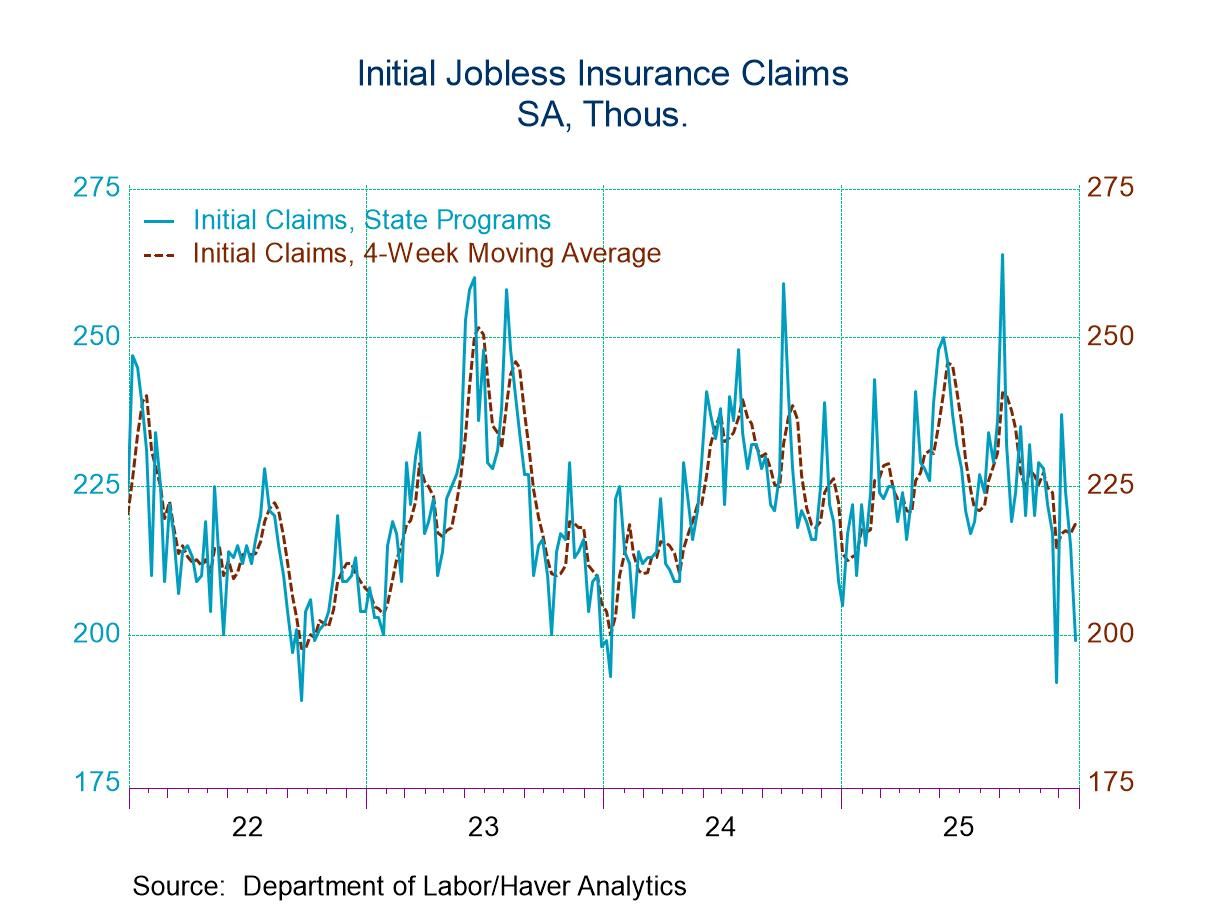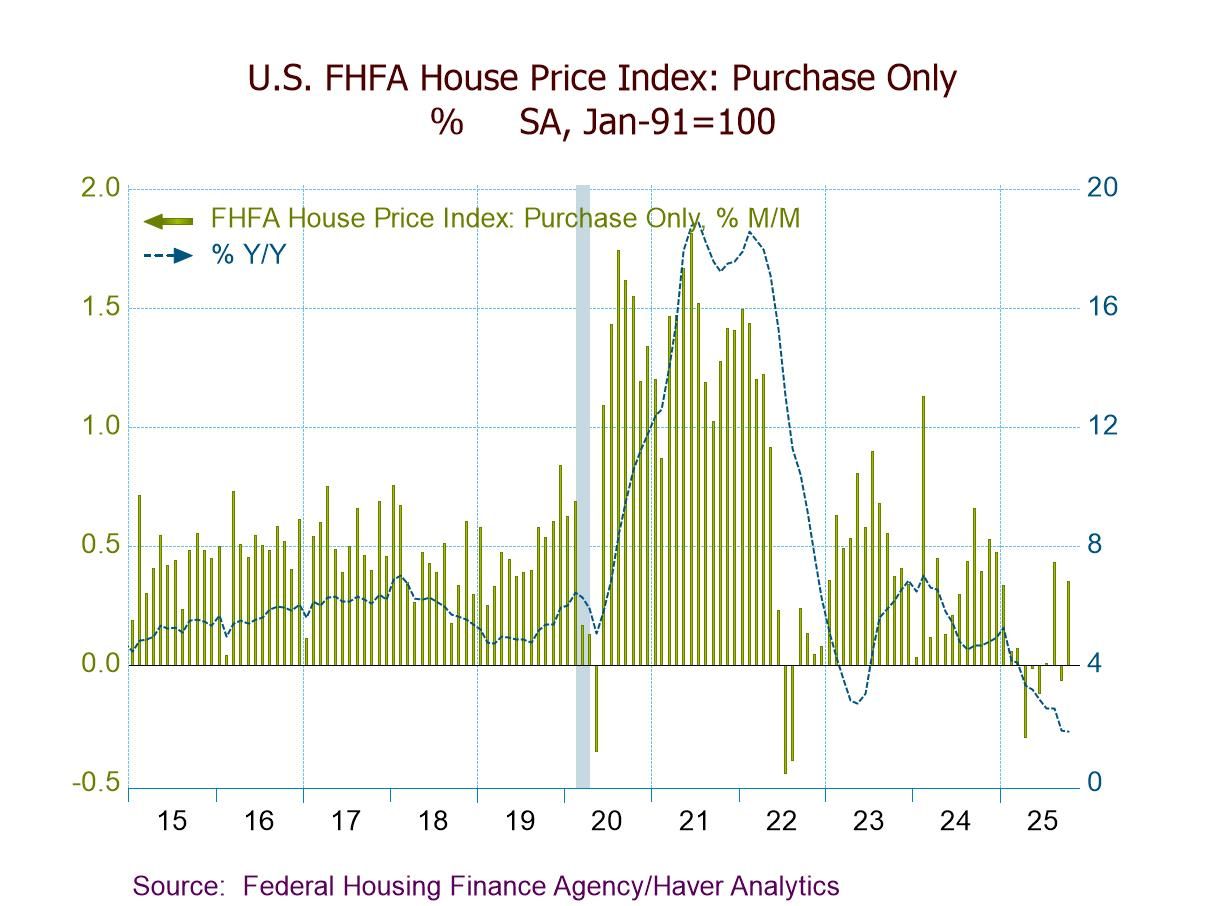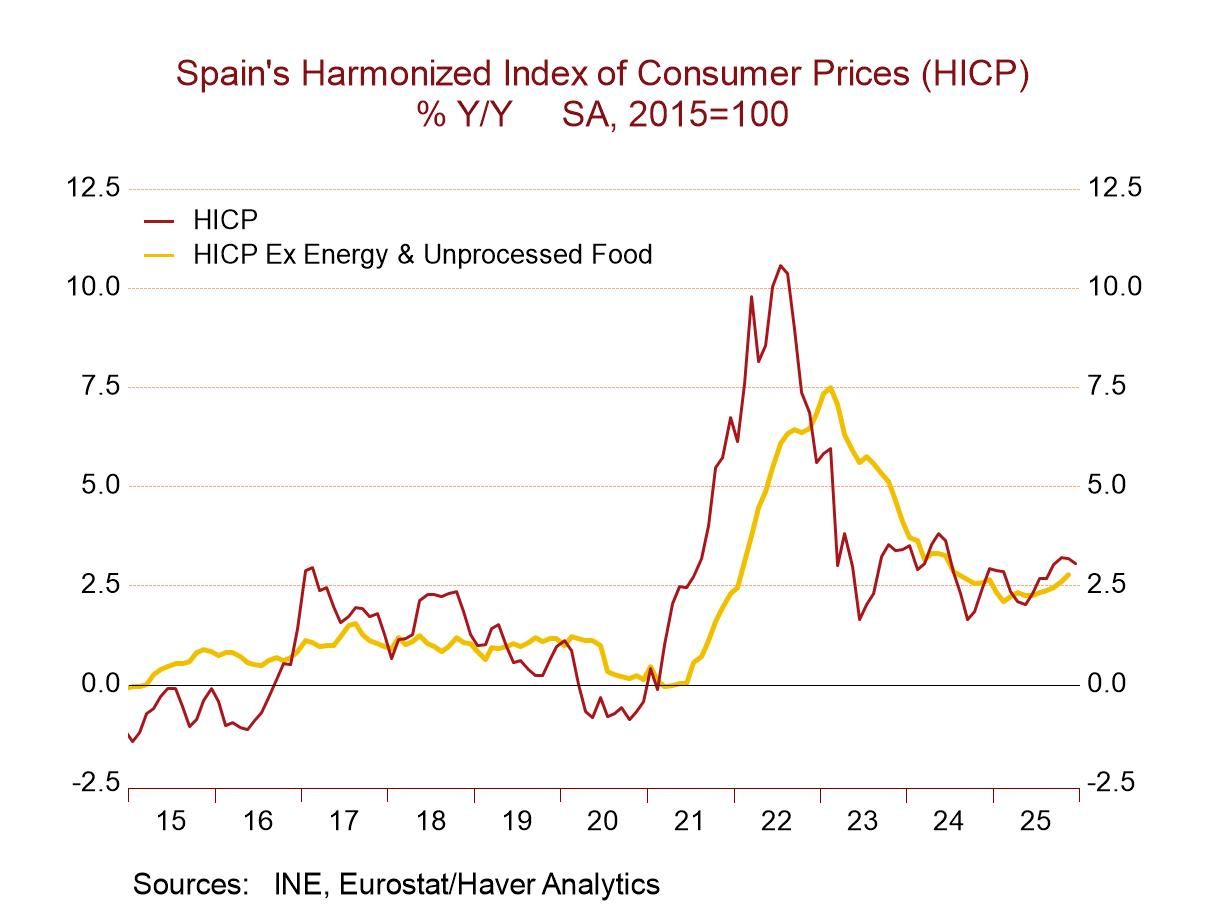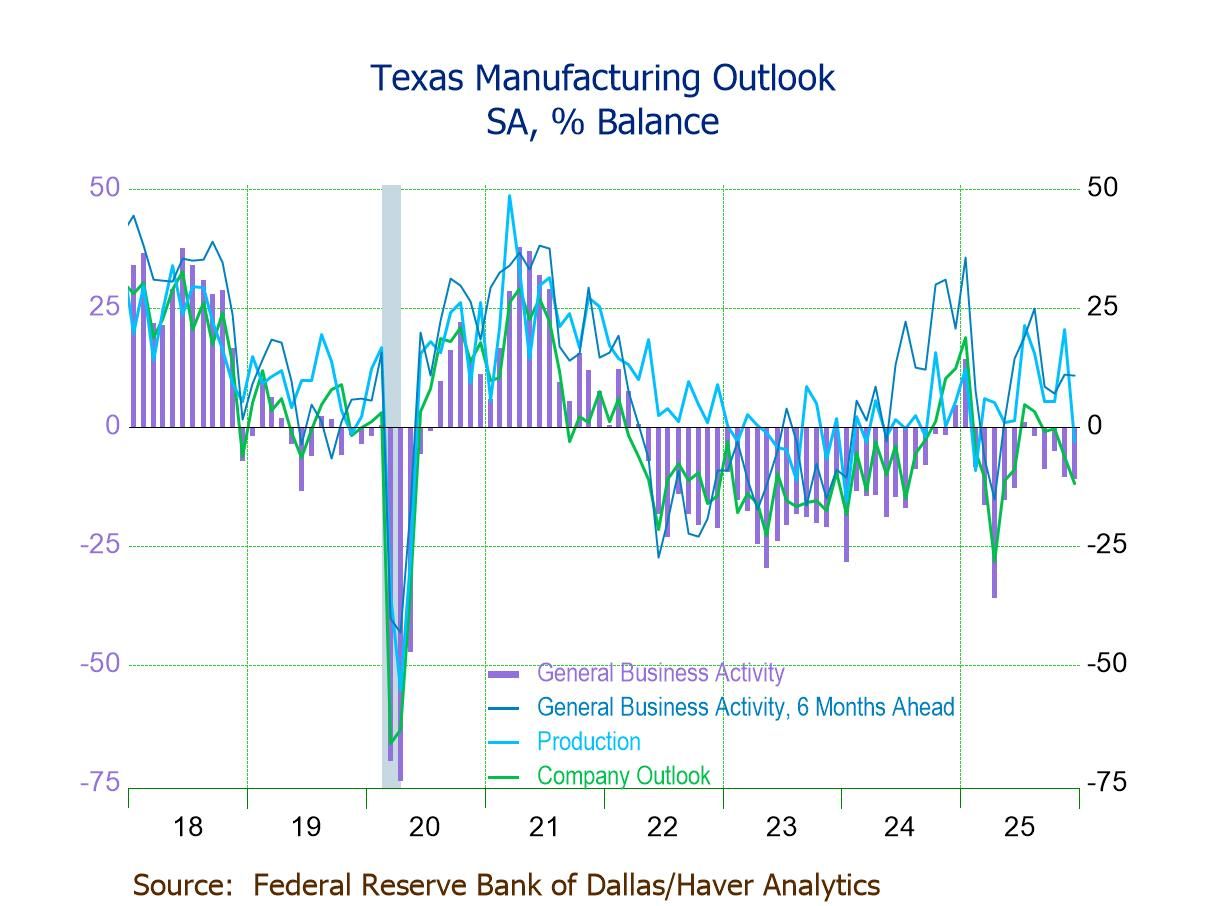 Global| Nov 21 2013
Global| Nov 21 2013PMIs Lose Luster in Europe
Summary
The EMU economy continues to advance, but the November PMI gain is decidedly lackluster. The manufacturing gauge rose to 51.55 from 51.30. In the service sector conditions barely improved as the index advanced to 50.94 from 50.91. [...]
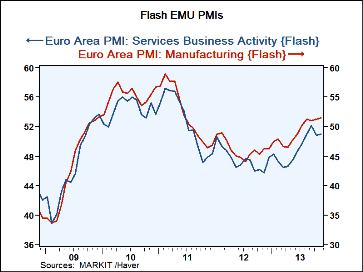 The EMU economy continues to advance, but the November PMI gain is decidedly lackluster. The manufacturing gauge rose to 51.55 from 51.30. In the service sector conditions barely improved as the index advanced to 50.94 from 50.91.
The EMU economy continues to advance, but the November PMI gain is decidedly lackluster. The manufacturing gauge rose to 51.55 from 51.30. In the service sector conditions barely improved as the index advanced to 50.94 from 50.91.
Europe's manufacturing PMI has been above 50, indicating expansion, for five straight months while the services sector registers growth for four months in a row.
Germany's manufacturing gain of nearly one full index point contributes most of the gain to the EMU manufacturing PMI this month. While the sharp gain in the German services sector stands in marked contrast to a stagnant eurozone total which still is boosted by the robust German rise as well.
One again we see that the German economy is pressing ahead while the rest of Europe is floundering.same old, same old.
This month China also took a step back with its manufacturing PMI at 50.4, falling from 50.9. The slowing in Europe may only be part of a broader picture, rather than representing individual malaise.
The early detail on the PMIs is sparse. But we do get an early reading for France. Its manufacturing PMI slipped mightily to 47.82 in November from 49.44 in October. One month ago it looked like French manufacturing was set to expand and that France would help pull the yolk to drag Europe into a full blown recovery. Now it is looking much worse. The French manufacturing PMI was last lower in May. The set back to French services is not quite so severe although it too fell sharply to 48.78 in November from 50.19 in October. That drop reverses two straight months of increases but still leaves the services sector better than it was in August.
The optimism for the improving trend in EMU is unrequited by the facts. Europe's dog may still have a lot of fight in it, but the fight itself looks like it is going to be longer than expected. The recent price data should be disturbing. Price weakness is a harbinger of activity weakness. Central banks are flooding markets with liquidity and still money growth is listless and credit growth is much worse. Activity falters and there is no pricing pressure whatsoever, instead there is further weakness. It is not yet deflation but that no longer looks like a worry that stretches the imagination.
Europe's recent PPI shows that weakness. The US PPI also is showing lingering weakness. The CPIs are weak. The lingering presence of austerity in Europe, the fiscal drag in the US and lack of leadership everywhere point to the fact that the same old problems continue not just to haunt, but to impede progress. Everything is just the same as it was, but at a slower speed. Monetary stimulus alone is getting us nowhere. Is that where we want to go?
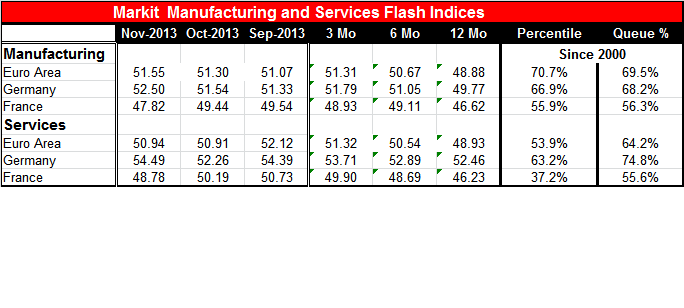
Robert Brusca
AuthorMore in Author Profile »Robert A. Brusca is Chief Economist of Fact and Opinion Economics, a consulting firm he founded in Manhattan. He has been an economist on Wall Street for over 25 years. He has visited central banking and large institutional clients in over 30 countries in his career as an economist. Mr. Brusca was a Divisional Research Chief at the Federal Reserve Bank of NY (Chief of the International Financial markets Division), a Fed Watcher at Irving Trust and Chief Economist at Nikko Securities International. He is widely quoted and appears in various media. Mr. Brusca holds an MA and Ph.D. in economics from Michigan State University and a BA in Economics from the University of Michigan. His research pursues his strong interests in non aligned policy economics as well as international economics. FAO Economics’ research targets investors to assist them in making better investment decisions in stocks, bonds and in a variety of international assets. The company does not manage money and has no conflicts in giving economic advice.



